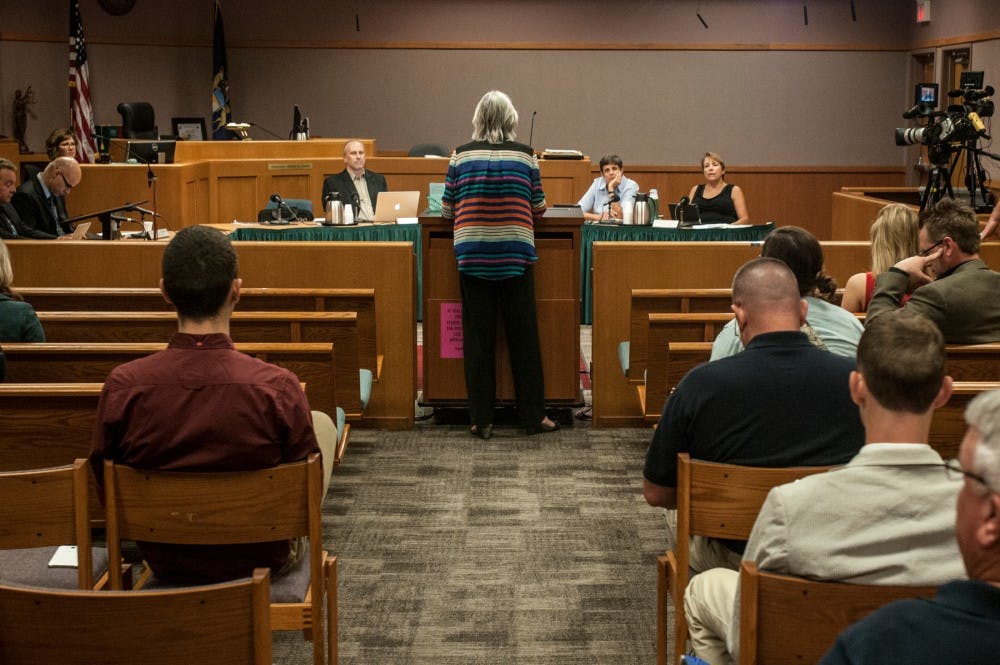The East Lansing City Council heard a progress report from its Financial Health Review Team, a committee of residents and experts examining the city’s finances, on Oct. 18.
The report comes as the city seeks to address $100 million in anticipated future costs which are not covered by the current level of funding at the city’s disposal.
After eight months of work, the team is nearly done with its research, which focused on legacy costs for city employees such as pensions, property taxation, development incentives, funding strategies for city infrastructure and the quality of city services.
Financial Health Review Team chairman Mike Moquin said the team split into six committees based on the topics, and several are still gathering information and planning to report to the council by the end of the year.
The team is researching a city income tax for the council to consider. The tax would be no more than one percent for residents and a half percent for non-residents, by state law.
“I think recognizing that there are all these forces coming in where costs are increasing, but the pot of money to pay for those services is not increasing,” Moquin said.
Mayor Mark Meadows said in the meeting the council wants to limit the impact of the possible income tax on students. He said he would like to hear community input on the subject.
“I’ll be interested, if this does become an issue the council discusses, in hearing from students about that issue,” Meadows said. “We want it to have the least possible impact on student incomes as they’re struggling to make ends meet in school.”
But the Financial Health Review Team is struggling to get community involvement, Moquin said.
“I think it’s important that these be discussed and citizens be engaged,” he said. “It’s been somewhat of a challenge to obtain attendance at the hearings.”
There will be two more Financial Health Review Team meetings this year. The first is at 6:30 p.m. on Nov. 14 in the Hannah Community Center, and the second is the same time and place on Nov. 28.
Councilwoman Susan Woods said she thinks more people will be interested once the team begins making recommendations.
“If you (the Financial Health Review Team) state that these meetings are having recommendations, that people will want to come (t0),” Woods said. “There will be some definitive results and I think that will draw people.”
Moquin stressed the team’s advisory role and said it is up to the City Council to take action.
“The council can then decide which of these make sense, how do you prioritize them,” he said. “They may decide things they won’t pursue. In 1998 they looked at an income tax, and ultimately decided they weren’t going to pursue that.”







